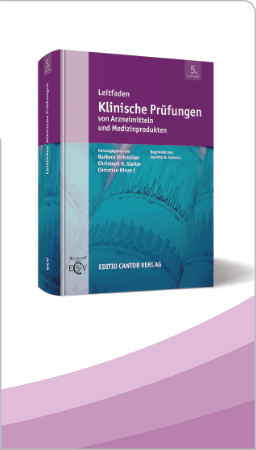Grundprinzipien einer effektiven und effizienten Qualifizierung
Anregungen für die Praxis – Teil 4: Es wird formal – Abgleich mit den Regelwerken*)
GMP / GLP / GCP
Abstract
This contribution is part of a 4-part series of articles. Part 1 deals with basic principles, part 2 with planning, part 3 with implementation and part 4 is about comparison with the regulations.
There is certainly agreement that after more than 30 years, the topic of qualification requires a fundamental renewal, or at least a significant increase in efficiency. This has been recognised by both the authorities and the industry and has been responded to over the last few years with appropriate publications and recommendations. Parts 1 to 3 of this series of articles, which are published here, also refer to this and are also based on the author’s experience with suggestions as to what could be done better, simpler and more efficient. However, these suggestions are neither new, nor special, nor explicitly invented by the author. They are suggestions that are discussed repeatedly at public events, in corresponding committees and in specialist articles, but are not implemented consistently in the final analysis. This raises the question of the “why”. Certainly, one of the reasons lies in the fact that once introduced and established, concepts cannot immediately be fundamentally changed, but only in small steps. But even these small steps are often not taken. And the real cause seems to be more likely to be the concern that changes to an existing and tested concept could raise compliance problems and could cause complaints during inspections by the authorities. The resulting damage would then be out of all proportion to the gain from a more efficient qualification system.
The fourth and last part of this series of articles therefore deals with the question of what actual risks exist with regard to the required regulatory compliance if the qualification concept is made more efficient and leaner. To this end, the suggestions for improvement from parts 1 to 3 are briefly summarised again and compared with the requirements of the most common guidelines, regulations and standards.
 | Ralf Gengenbach startete nach seiner universitären Ausbildung zum Chemieingenieur an der Technischen Universität (TU) Karlsruhe seine berufliche Laufbahn 1987 in der BASF AG, Ludwigshafen. Über 10 Jahre agierte er als interner Good-Manufacturing-Practice(GMP)-Berater, wobei er neben der Etablierung eines effizienten und kostenorientierten Qualifizierungssystems in zahlreichen Fachausschüssen zu diesem Thema u. a. beim Deutschen Institut für Normung (DIN), Verband der Chemischen Industrie (VCI) und der Gesellschaft für Chemische Technik und Biotechnologie (DECHEMA) mitwirkte. Er war früh in die Ausarbeitungen und |
Schließen Sie hier ein Abonnement ab und profitieren Sie von den vielseitigen Nutzungsmöglichkeiten.





